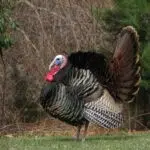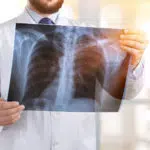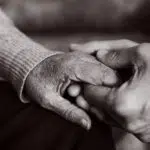All Saints Day is observed on November 1. It is also known as Todos Los Santos in Spain. All Saints’ Day, also widely recognized as All Hallows’ Day, the Feast of All Saints, the Feast of All Hallows, the Sacredness of All Saints, and Hallowmas, is a Christian solemnity recognized in honor of all known and unknown saints of the church. All Saints Day is a Christian holiday commemorating all the saints throughout Christian history. The Methodist Church, the Lutheran Church, the Roman Catholic Church, and other Protestant denominations observe it on November 1. The Eastern Orthodox Church and related Eastern Catholic churches observe All Saints Day on the first Sunday after Pentecost.
History of All Saints Day (Spain)
All Saints Day is observed annually on November 1. It may have originated in a Greek Christian tradition first from the fourth century when a festival was held on the Sunday just after Pentecost to honor saints and martyrs. The first published All Saints Day took place on May 13, 609, just before Pope Boniface IV accepted Emperor Phocas’ gift of the Pantheon in Rome. The Pope declared the day a holiday in honor of the Blessed Virgin Mary and all martyrs. All through Pope Gregory III’s reign in 835, the festival was moved to November 1 and expanded to include the saints, as well as those for whom sainthood is only recognized by God.
The date was most likely chosen intentionally to substitute for the pagan feast of the dead, Samhain. Evil spirits wandered the land searching for humans on the night before Samhain. Residents would dress up as creatures to confuse the spirits. This custom continued after November 1 became a Christian holiday, giving rise to the name ‘Halloween,’ a shorter form of All Hallows’ Eve. The day did survive the Reform movement, though the Protestants merged it with All Souls’ Day on November 2nd. The day was eradicated as a church festival in 1770, but many churches still observe it on the first Sunday in November.
All Saints Day is a Holy Day of Commitment in Roman Catholicism. This means that Catholics must attend Mass on the specified date unless they have a valid reason not to, such as illness. Catholics are encouraged but not required to attend mass on November 1 if it falls on a Monday or a Saturday adjacent to the Sunday sabbath. The holiday is traditionally recognized with a reading of the Beatitudes, eight blessings given by Jesus in his Sermon on the Mount as recalled in Matthew’s Gospel. In recent years, many churches have begun to honor all who died throughout the year on the day itself. Some people also place candles on graves on the evening of All Saints Eve.
All Saints Day (Spain) timeline
The first recorded celebration of a feast day to commemorate saints is in Edessa, and it is celebrated on May 13.
Pope Gregory III effectively moves All Saints Day from the Sunday following Pentecost to before All Souls' Day.
During his tenure as pope, Pope Sixtus VI adds an eight-day celebration period (or octave) for All Saints Day.
Church initiatives abolish the All Saints vigil and octave, ushering in the single-day commemoration that most Christians now know.
All Saints Day (Spain) FAQs
Does the “Bible” condemn Halloween?
Although many scriptures condemn pagan practices, none particularly warns against celebrating Halloween.
What foods are consumed on All Saints Day?
These dishes vary by region, but some favorites include ceci con le costine (a hearty Piedmontese soup with chickpeas and pork ribs) and pane dei morti, a sweet bread-cookie hybrid made with crumbled biscuits, flour, eggs, and sugar, and packed with cinnamon, chocolate, and raisins.
What is the distinction between All Saints and All Souls Day?
On November 1, All Saints Day commemorates all the saints and martyrs throughout Christian history. It is accompanied by All Souls Day on November 2, which commemorates Christians who have passed away.
How to Observe All Saints Day (Spain)
Share knowledge with others
Share all of the fascinating facts you've discovered about this observance, as well as the things you know about saints. With the world in disarray, it always helps to look back to the saints and their pious lives for guidance. You can share a link to this article on social media with the hashtag #allsaintsday too!
Say a prayer
Say a prayer to commemorate the occasion. Today is the perfect day to say a prayer to all saints, whether we know them or not. It is also a good day to recall their good deeds and try to emulate them.
Go to church
Churches frequently organize special masses for the occasion. You can also learn more about the lives of saints and their contributions to Christianity by attending the mass.
5 Interesting Facts About Saints
A saint's body is sacred
When a person is declared a saint, their body is considered sacred, and some remains of saints are actually considered incorruptible.
Some saints are not named
Some people may have been considered by the Lord as saints for living good lives despite not being recognized formally by the Catholic Church.
Relics are related to saints
Saints' belongings and body parts are relics.
Saints are resilient
Saints acknowledge both joys and trials without complaint because they believe that everything that occurs to them is from God's loving hands.
Being a saint is a process
A structured process known as canonization is needed to become a saint, which can be lengthy and may even take centuries.
Why All Saints Day (Spain) is Important
We can explore our spirituality
Acknowledging this day helps in the development of our spirituality. Seeing how somebody lived their life despite the difficulties they encountered brings us closer to our spirituality.
It broadens our understanding
When days like this occur, we tend to investigate further. Because no understanding is wasted, learning more about most saints, such as Saint Paul, Saint James, Saint Peter, and others, is a rewarding experience.
It expresses gratitude for good work
A day like All Saints Day highlights the good that people do to assist others. While few people can do what the saints did, it is important to recognize those who can and to remind ourselves that we should try to emulate them.
All Saints Day (Spain) dates
| Year | Date | Day |
|---|---|---|
| 2025 | November 1 | Saturday |
| 2026 | November 1 | Sunday |
| 2027 | November 1 | Monday |
| 2028 | November 1 | Wednesday |
| 2029 | November 1 | Thursday |






















































































